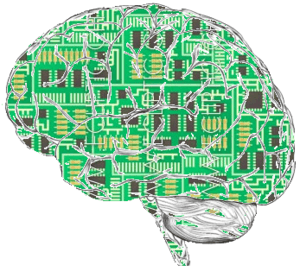What do elementary pedagogy and artificial intelligence have in common?
Leaders in both fields have abandoned the study of the trees for that of the forest.
From preschool through high school, progressive educators have long advocated for project-based learning as against old-school rote memorization. The goal is transferability of knowledge, as opposed to narrow, domain-based learning. Young children, for example, master the principles of addition faster, and can apply them more broadly, by grouping real-world objects than by manipulating numbers on paper.
A similar shift is happening in the field of artificial intelligence. Scientists aresignificantly improving machine-thinking by reverse-engineering human cognition. According to Ray Kurzweil, a pioneer in voice recognition technology and the author of How to Create a Mind: The Secret of Human Thought Revealed, the future of artificial intelligence is in pattern recognition. The basic algorithms of human thought, Kurzweil says, just aren’t that complicated. From an observation about the weather to a sophisticated joke, cognition at every level operates according to a few simple principles. Researchers have gotten lost, he says, in the diversity and complexity of individual neurons and are missing the bigger picture.
What’s the Significance?
While he believes that our destiny is to outsource much of what we’ve traditionally called “thinking” to machines, Kurzweil is a strong advocate for education. Not surprisingly, he rejects rote learning (“we have machines for that”) in favor of project-based learning at every level, from Kindergarten through graduate school. At Singularity University, which Kurzweil co-founded, students form small groups to tackle enormous problems like climate change. Whether or not a given project succeeds isn’t exactly the point – the point is that in struggling to come up with creative solutions, the students learn powerful problem-solving approaches they’ll be able to build upon, to develop more sophisticated forms of strategic thinking.
The project-based approach has its critics, of course, both in education and in computer science. Opponents of the holistic learning movement argue that it throws the baby out with the bathwater, failing to teach basic and essential skills like multiplication. The political backlash in elementary public schools takes the form of programs that promote a “back to basics”, “skill-based” approach. And Microsoft co-founder Paul Allen argues that attempting to “reverse-engineer” the brain with our limited, present day knowledge is like asking medieval scientists to reverse-engineer a jet engine.
Read more . . .
via Big Think – Jason Gots
The Latest Streaming News: Pattern recognition updated minute-by-minute
Bookmark this page and come back often
Latest NEWS
Latest VIDEO








